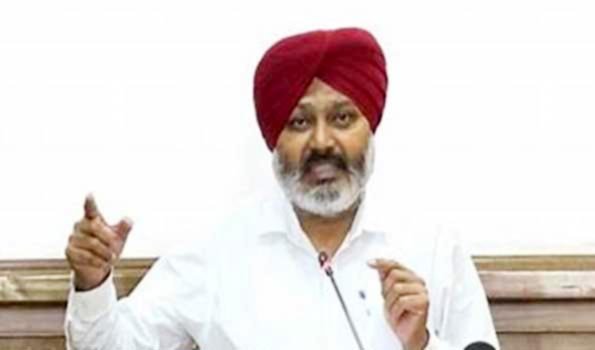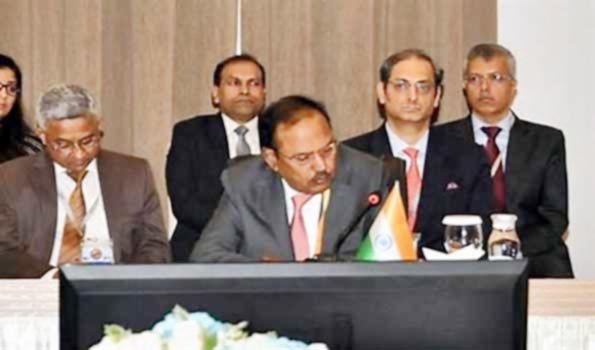New Delhi, May 3 (UNI) The Supreme Court on Friday stayed the Punjab and Haryana High Court order in which it had directed to open the road to the Chief Minister’s residence which was blocked for security purposes during the Khalistani terrorism period of the 1980s.
The High Court had directed to open the road to the Chief Minister’s house on an experimental basis from May 1 saying that “roads cannot be closed in perpetuity” when most of the time Chief Ministers are not even there and traveling for work outside the Union Territory.
The road in front of the Chief Minister’s residence was blocked for security purposes during the Khalistani terrorism period of the 1980s.
A bench comprising Justice Sanjiv Khanna and Justice Dipankar Datta while staying the High Court’s order said, “Nobody wants anything untoward to happen”.
Justice Datta asked if there was an alternative to the road in question.
The Advocate General of Punjab Senior Advocate Gurminder Singh informed that a bypass was underway and once it is complete, there will be no requirement to block the road.
The High Court had directed the Director General of Police and Senior Superintendent of Police, U.T., Chandigarh to “formulate a traffic management plan as to how to ease the traffic congestion”.
The High Court in its order had criticized the state saying that the government’s approach for ignoring public convenience and suggested that initially, the road be opened on working days from 7:00 AM to 7:00 PM to ease traffic congestion on such days.
The High Court had said, “Various threat perceptions have been mentioned which we do not want to elaborate and we all feel that the inputs as such regarding the threat of drones and the RPGs being used would go on to show that the opinion is based on a closed mind-set of the authorities who are insensitive to the general public’s convenience.”
Besides the above, the High Court expressed that the Punjab government shall positively act on the Chandigarh Tricity plan.
“The proposed mobility plan for Chandigarh Tricity which has been acted upon shall also be positively acted upon by the State of Punjab and there is no tangible reason as such for the State of Punjab to drag its feet on the same since it is going to be a beneficiary of the said mobility plan which will not only benefit the people visiting Chandigarh but also the officials who have to travel to Chandigarh from distant parts of Punjab”.
During the hearing on Friday before the Apex Court, the Advocate General of Punjab pointed to the killing of singer Sidhu Moosewala, saying that he was killed 2 days after his security was scaled down. The AG also referred to a Rocket Propelled Grenade (RPG) attack on the Intelligence headquarters and urged the top court to stay the High Court’s direction.
Solicitor General Tushar Mehta supplemented the Punjab government’s case, contending that security management should be left to the government.
Mehta said, “Who would take responsibility if something untoward takes place within the 1 week for which the High Court has directed the experiment.”
Mehta said, “The terrorists only have to succeed once, but the agency has to succeed every time”.
The SG also expressed that many terrorist incidents do not come to light because they are averted by the agencies.
The Apex Court, after hearing the lawyers from both sides issued the notice, returnable in the week commencing September 2, and stayed the High Court’s direction for the opening of the road to the CM’s house till the next date.











